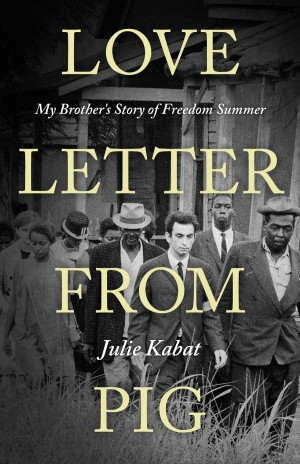Shadows We Carry opens with the assassination of John F. Kennedy on November 22, 1963. It’s a defining moment in history, and, as Bronka Lubinski astutely comments, “Nothing will ever be the same again.” The novel is Meryl Ain’s sequel to The Takeaway Men, but it can certainly be appreciated as a standalone read. It deftly and engagingly illustrates the effects of the societal changes and upheavals of the 1960s and 70s.
Judy and Aron Lubinski, both Holocaust survivors, and their fraternal twin daughters, who were born in a DP camp, all carry deep family secrets from their past lives as they struggle to assimilate to American life in Queens, NY.
Both sisters attend Queens College, but that is perhaps where their similarities end. The popular and bubbly JJ (Johanna) dreams of becoming an actress, while the sensitive, politically aware, and introspective Bronka is the college’s newspaper editor. Although they are both affected by the mores and expectations they encounter, it is through Bronka’s eyes that the storyline unfolds. Her inner voice drives the narrative forward, and her life experiences mirror the confusing and turbulent times.
Bronka encounters ever-present sexism as she seeks entry into journalism school. She is relegated to a “women’s” reporting role at work and in the nascent McCarthy and RFK political campaigns. She often questions her identity, self-worth, and aspirations, while her sister plays out her life in a more traditional and accepted manner.
But the novel’s scope reaches beyond just one family. The extended Jewish families of the neighborhood, friends, coworkers, activists, Catholic priests, and ex-Nazis and Nazi hunters all have a role to play.
In this well-researched, character-driven story, Ain examines many themes and issues with insight and compassion. She folds topics such as feminism, antisemitism, gay rights, abortion, and second-generation Holocaust survivor concerns into the characters’ lives. Because Ain thoughtfully interweaves numerous historical events, significant nostalgic details, and cultural and geographic references, the characters’ stories will resonate deeply with those who experienced the era.
At its crux, Shadows We Carry asks how past lives and buried secrets affect families from generation to generation. Do the shadows we all carry determine who we are? How do we learn to live with them? Who bears responsibility, who bears guilt, and who must right the wrongs?
Renita Last is a member of the Nassau Region of Hadassah’s Executive Board. She has coordinated the Film Forum Series for the Region and served as Programming and Health Coordinators and as a member of the Advocacy Committee.
She has volunteered as a docent at the Holocaust Memorial and Tolerance Center of Nassau County teaching the all- important lessons of the Holocaust and tolerance. A retired teacher of the Gifted and Talented, she loves participating in book clubs and writing projects.





